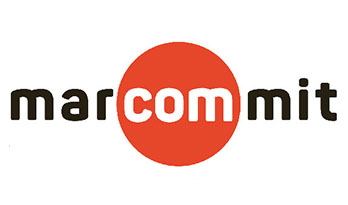Keeping internal comms fresh across regions as business operations expand
Internal communications are key to the inner workings of any business. The updates go out, the welcome packs are placed on office desks and handbooks are uploaded to the company’s HR platform. But if the content has not kept pace with how the business is changing, disengagement can follow.
For B2B tech businesses expanding into new regions, the stakes are higher. Growth adds complications in the context of distance, time zones, languages and new cultural reference points. If the internal comms are inconsistent across locations, employees often feel uninformed and they can start to form their own narrative about what the business values and whether leaders are credible.
That misalignment rarely stays internal. It affects how teams show up for customers, how confidently they represent the brand and how consistently they deliver work across markets. Over time, it can also impact retention and recruitment, with the employer brand negatively affected in every new region entered.
Why global growth puts pressure on internal comms
International expansion can often create tension between global direction and local reality. One-size-fits-all messaging from headquarters can feel overly centred on one region, even when the intent is inclusive. When people do not recognise their day-to-day reality in the messaging they receive, internal comms can start to feel irrelevant or performative. That is often when attention drops, and employees stop acting on what is shared, even when the content is important.
When teams are unclear on priorities or processes, delivery slows and clients feel it. Work is duplicated or sub-standard. Client-facing teams can end up improvising in ways that create inconsistency in messaging or ways of working.
What follows is a sense of disengagement among staff in other locations. According to Gallup’s State of the Global Workplace 2025 report, just over a fifth (21%) of the world’s employees feel engaged at work. Poor engagement can create performance problems for the business with clients and reduced revenue.
Achieving consistency without the copy and paste
The answer is to achieve global consistency, but this doesn’t mean sending the same message everywhere and hoping it lands with every employee. Instead, it means having a clear core narrative that stays stable across markets and supported by local context that makes it meaningful.
Strategy, priorities and leadership voice should feel recognisable, wherever the message is read, which matters for internal clarity and for external confidence. Clients notice when teams in different regions describe the business differently, follow different processes or interpret priorities in conflicting ways.
If internal comms and employer branding are to work internationally, one of the best places to start is a simple audit across the different regions of operation. Comparisons should be made on what employees in contrasting countries receive and what they are expected to do as a result. Onboarding, leadership updates and policy content should be prioritised, as these are usually reused most often and most likely to be out-of-date.
Core messages then need to be tightened to make the strategy and priorities crystal clear, with straightforward language that can be translated easily without any of the meaning being lost. It often pays to build in local leadership voices to help staff connect with decision-makers, leading to a clearer internal brand that can be communicated externally to help win new business.
Good internal communications translate to great results for clients. When teams are aligned on what the organisation is trying to achieve, what “good” looks like and how decisions are made, they deliver work more consistently. They respond to clients faster, manage expectations more confidently and reduce avoidable friction across regions. Internal clarity also makes it easier for client teams to protect quality and maintain trust as the business scales.
Now is the time for a reset
With expansion into new regions, it is worth treating internal comms as a growth capability, rather than just an admin function. The goal is to give employees, wherever they are, a consistent experience of the organisation’s direction, culture and leadership. When the employer brand holds together at scale, so does the external one being presented to clients.
Align your global internal comms under a unified brand and approach. The WIN PR network can support audits, narrative development, localisation and delivery across markets.
Get in touch at hello@winprgroup.com


